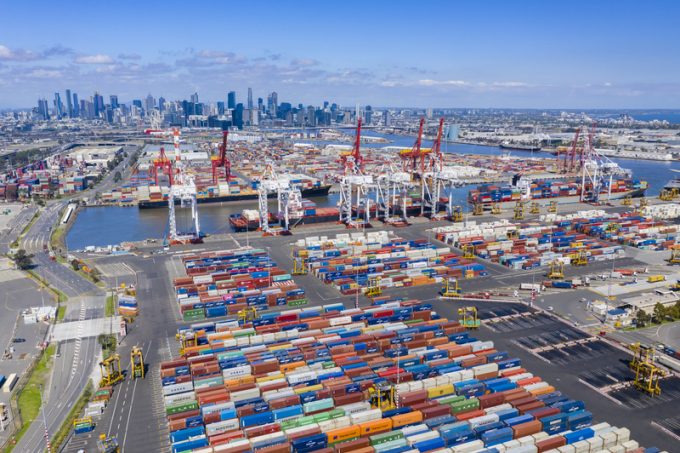Unions renew call for industrial action at France’s biggest box port
Docker and port worker unions at France’s biggest container port, Le Havre, have begun a ...

The Maritime Union of Australia (MUA) has launched another series of strikes against Patrick Terminals, causing “even more pain” for shippers.
The 19-month saga over a new workplace agreement has escalated after the MUA announced rolling industrial action at Patrick’s Melbourne terminal for Mondays, Wednesdays and Fridays in October, in addition to existing on-and-off work bans in Brisbane, Sydney and Fremantle.
Patrick CEO Michael Jovicic said the move – after nearly 70 meetings with the union to try and hammer out a ...
Outlook for container shipping 'more uncertain now than at the onset of Covid'
Shippers warned: don't under-value US exports to avoid tariffs – 'CBP will catch you'
Teamsters union vows UPS will be 'in for a hell of a fight' over jobs cull
Cancelled voyages take the sting out of spot rate declines this week
New Houthi warning to shipping as rebel group targets specific companies
K+N CEO unveils impact of US import tariffs on China-origin goods
Blanked sailings in response to falling demand 'just a stop-gap solution'
CMA CGM to reflag box ship as the French carrier eyes growing Indian market
More pressure on transpacific rates as carriers bet on a China-US trade deal
Boeing looks to resell up to 50 aircraft rejected by Chinese buyers
'Strong start' to 2025, despite market uncertainty, says Kuehne + Nagel
US Customs chaos means 'more downside risk than upside potential' for air cargo
Taiwan ministries act to mitigate effect of trade war on agriculture exports
Wan Hai joins box shipping 'arms race', but avoids Chinese yards for newbuilds
MOL signs up with Climeworks for direct air carbon capture and storage


Comment on this article